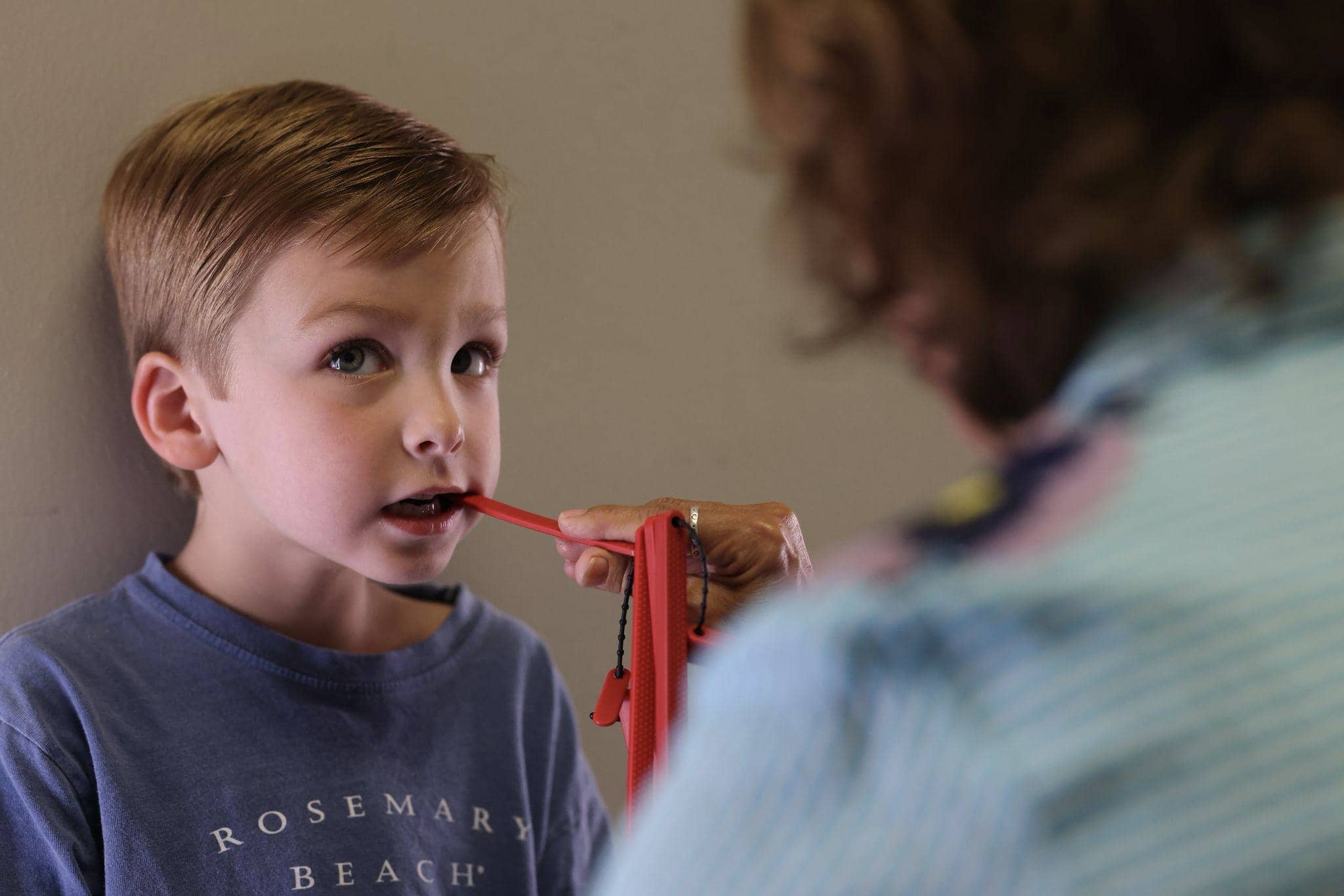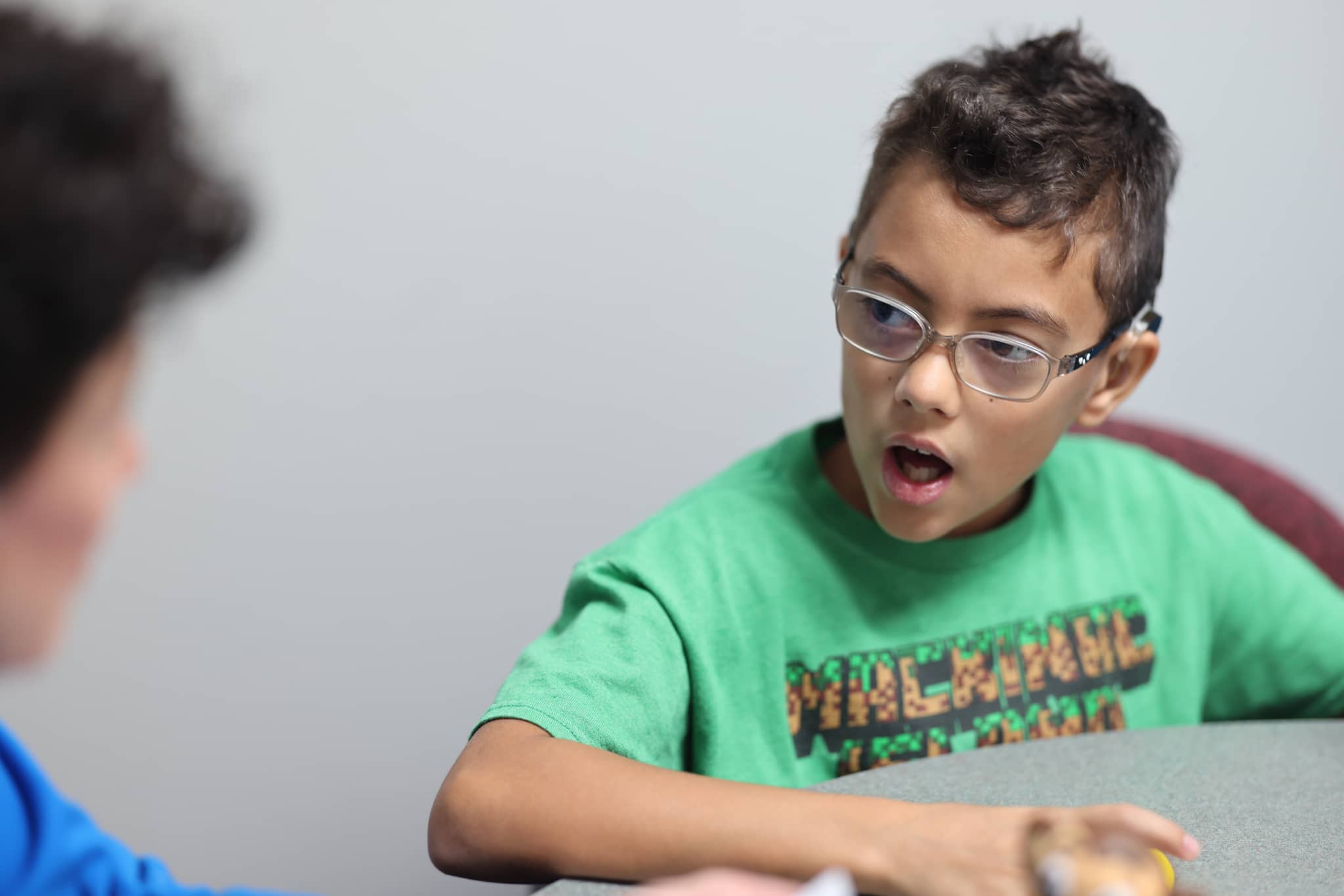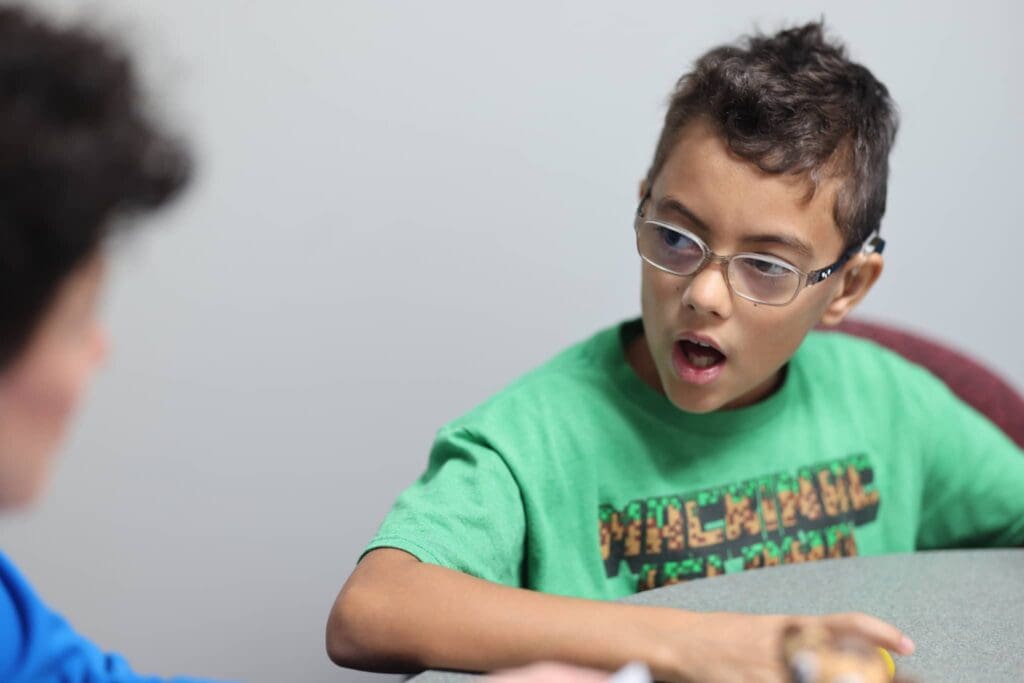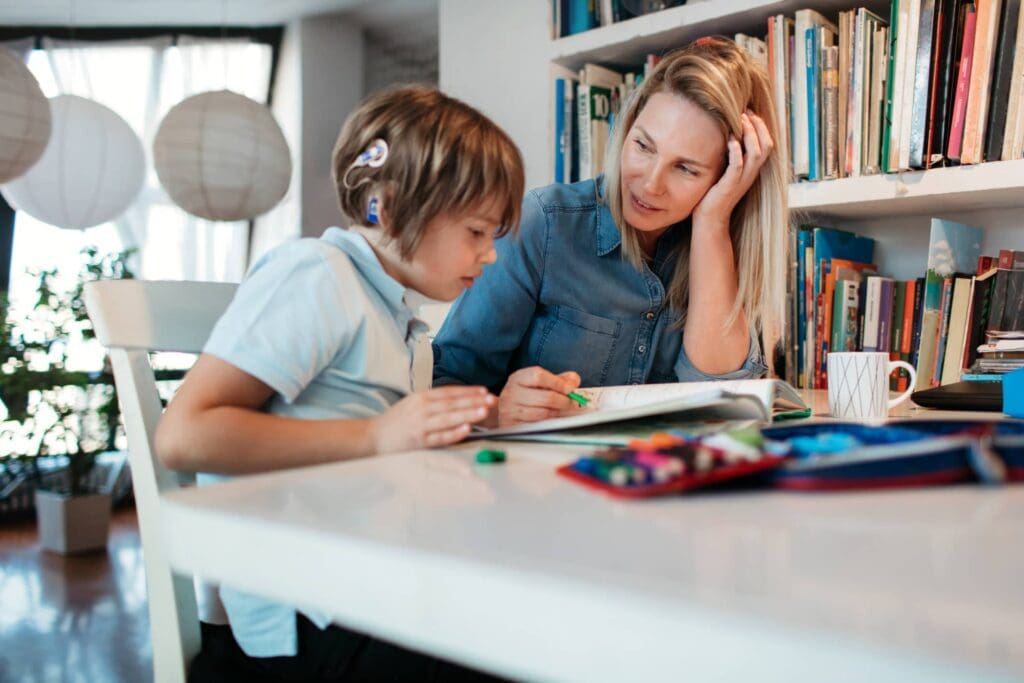
Oral motor deficit disorders encompass a range of challenges that impact the muscles responsible for speech and swallowing. These disorders can affect the strength, coordination, and precision of oral movements, making it difficult to articulate words clearly, maintain proper speech fluency, and manage everyday functions like eating and drinking. Symptoms might include slurred speech, difficulty with sound production, and issues with swallowing or chewing.
At our practice, we offer a thorough assessment to identify the specific nature and extent of oral motor deficits. Our individualized therapy plans are designed to address these issues through a combination of exercises and techniques aimed at improving muscle control, coordination, and overall oral motor function (including Talk Tools and Dynamic Temporal and Tactile Cueing). Techniques may include targeted strengthening exercises, coordination activities, and sensory stimulation to enhance muscle performance. We focus on helping you regain effective communication abilities and improve your overall quality of life.
Our dedicated therapists work closely with each client, employing evidence-based strategies and customized interventions to support your unique needs. Whether you are an adult seeking to enhance speech clarity or a child needing assistance with oral motor skills, our goal is to help you achieve optimal functional outcomes and regain confidence in your everyday interactions.

Myofunctional (tongue thrust) therapy targets Orofacial Myofunctional Disorders (OMDs), which disrupt the normal patterns of the mouth and tongue, leading to various issues such as abnormal breathing, sleep disorders, feeding and swallowing difficulties, speech delays, and orofacial pain. Signs of OMD include speech articulation difficulties, difficulty swallowing with the lips closed, disordered sleep (such as obstructive sleep apnea), and open-mouth posture and/or drooling.
OMDs can be caused by both physical differences in the structure of the mouth and facial muscles and behavior patterns over time, including prolonged use of pacifier or thumb sucking. These disorders affect the muscles and function of the mouth, often resulting in improper swallowing. Incorrect patterns can lead to muscle misalignment, causing problems like temporomandibular dysfunction (pain and dysfunction in the jaw joint and muscles controlling the jaw), teeth misalignment, headaches, and feeding difficulties.
Correct swallowing relies on the coordinated action of tongue and mouth muscles, and when performed correctly, the tongue presses against the roof of the mouth during swallowing. Myofunctional therapy aims to strengthen and retrain these muscles to improve resting posture, speech precision, breathing alignment, and swallowing function. At Bliss, we offer therapy for both children and adults exhibiting signs of OMD.
During your first visit, our SLP conducts a comprehensive evaluation, examining your medical history, oral structure, and muscle function. Based on this assessment, an individualized therapy plan is developed to address your or your child’s specific needs.

Our certified speech/language pathologists provide exercises to strengthen oral muscles and improve coordination for clearer speech and functional eating.
We provide comprehensive treatment for issues related to muscle function and alignment in the face and mouth, promoting optimal speech and oral health.
We offer individualized therapy to help children develop and refine their speech skills, addressing the unique challenges of apraxia.
Our trained speech/language pathologists target issues such as tongue thrust, incorrect swallowing patterns, and oral posture problems to provide appropriate intervention.

Cochlear implant rehabilitation helps individuals adapt to and maximize the benefits of cochlear implants prior to and following activation through therapy services.

Aural rehabilitation is a speech therapy service provided to both children and adults who have been diagnosed with hearing loss following hearing aid fitting or cochlear implant activation

Our speech/language pathologists specialize across a variety of speech and language needs for both the pediatric and adult populations.
